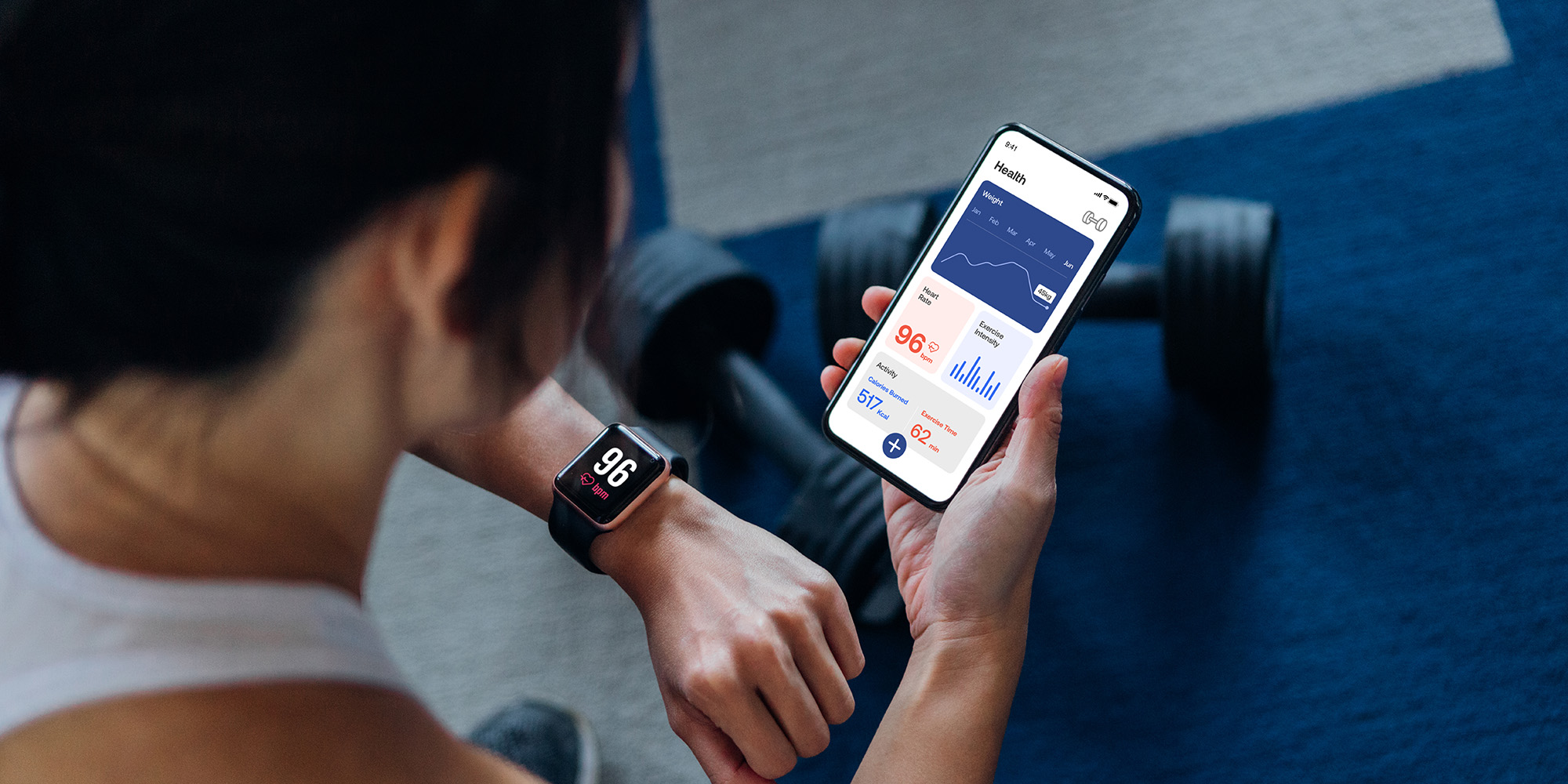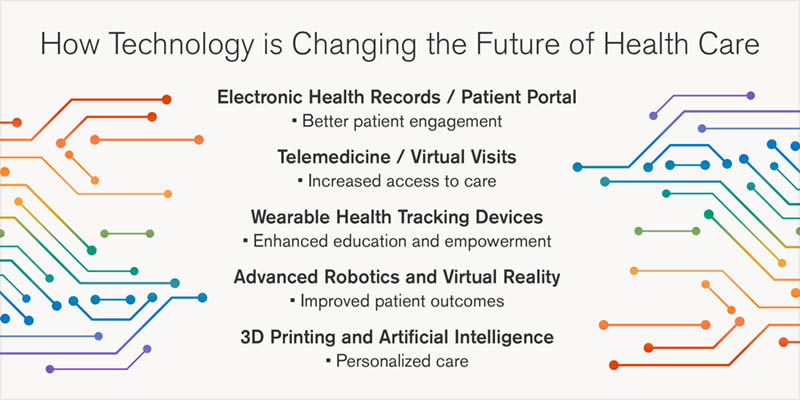How Technology is Helping You Live Longer and Healthier
October 4, 2024
Categories: Health & Wellness
Technology touches nearly every aspect of life, and health care is no exception. From the first X-rays in the late 1800s to today’s virtual reality robotic-surgery systems, scientists have paved the way to better care.
To better understand these changes, Loyola Medicine breaks down modern health care innovations into three categories based on how they improve your health.
These improvements include:
- Enhanced access to health care
- Smarter, more advanced medical care
- Patients having more control of their health through real-time data

Enhanced access to health care
Health care technology can help reduce barriers between you and your provider. Today, accessing services and your health information is easier than ever with options such as:
Telemedicine
Prior to the start of the COVID-19 pandemic, many health care systems used telemedicine on a limited basis.
During the COVID-19 pandemic, the main benefit of a virtual visit was that it eliminated face-to-face contact that could spread the virus. The lasting benefits that will carry this technology into the future include:
- Ability to provide and receive care from anywhere
- Enhanced convenience for patients and providers
Online appointment self-scheduling
More than 95% of Loyola Medicine providers now offer the option to self-schedule appointments through myLoyola's online open scheduling platform.
As a patient, you also have the option of scheduling an immediate care virtual visit, allowing you to receive care in as soon as 20 minutes or to schedule a time that works around your schedule. With virtual visits you or your child can be seen quickly by a physician and receive next steps for treatment, all without leaving the comfort of your home.
Electronic health record portals
The use of electronic health records is nearly universal in health care. Most electronic health records have a patient portal that provides patients access to parts of their medical record.
For example, Loyola patients can schedule or request appointments, view lab results and visit summaries, receive appointment reminders and more by logging into their myLoyola account.
But portals go beyond access. Many also allow you to:
- Communicate with your care team
- Manage medication refills
- Send records from one provider to another
Though patient portals have been around for many years, data from 2020 show that only about 40% of patients access their portal.
Smarter, more advanced medical care
When you visit your doctor, you may not notice the many ways technology is improving your care.
A simple example of this transformation is a medication alert. When a physician orders a medication, the computer checks it based on the information that’s already in the system. If it’s a medication the patient shouldn’t have, an alert pops up to notify the physician.
A more complex example is the advancement of medical imaging technology. Modern machines use complex algorithms to optimize CT and MRI scans.
These algorithms help limit radiation exposure, reduce test time and enhance image quality. What’s more, artificial intelligence helps doctors interpret images to more accurately identify abnormal areas.
More control of your health through real-time data
The market for smartwatches and digital health monitoring gadgets is surging, giving individuals unprecedented control over their health through real-time data. These devices currently track a range of metrics such as activity, sleep, heart rate, blood oxygen levels, and fertility.
- Activity and sleep: Modern smartwatches and fitness trackers monitor daily activity levels, count steps, and analyze sleep quality.
- Heart health: Some devices can detect irregularities such as atrial fibrillation.
- Blood oxygen levels: Some smartwatches can measure blood oxygen levels, aiding in monitoring conditions like sleep apnea or COVID-19.
- Fertility: Certain devices predict fertile windows, assisting in family planning.
In the future, smart devices may provide more personalized insights and predictive analytics for behaviors impacting health. Advanced cardiac monitoring through continuous electrocardiogram (ECG) monitoring is expected, as well as enhanced respiratory health insights through more detailed SpO2 monitoring.
Also, health care providers may soon be able to work with remote patient monitoring (RPM). This allows doctors to monitor patients’ health data remotely, aiding in managing chronic conditions like hypertension, diabetes, and heart failure.
Are there potential downsides to health care technology?
The benefits of technology far outweigh the risks. But it’s important to understand the potential downsides and challenges that technology brings, such as:
- Care from a distance: Technology, such as patient portals, can separate a patient from their care team. Patients and providers must be on guard for this and use technology in ways that enhance interactions and closeness.
- Cost: Technology is expensive but can also lead to greater efficiency and lower health care costs. It is the role of providers to ensure advancements are improving quality of care as well as value.
- Disparities in care: People who lack access to the internet or smartphones may get left behind in this technological evolution. Leaders and lawmakers must find a way to include everyone, regardless of socioeconomic status, or ethnic or racial backgrounds.
- Information overload: New technology produces greater amounts of information. As these data sets grow, interpreting them becomes more difficult. Google-like tools that use AI to filter information will be essential.
- Privacy and security: Protecting the security of large data sets is essential. Individuals, organizations and society haven’t clearly established what are acceptable risks when it comes to health data.
Leading-edge care at Loyola Medicine
Loyola Medicine offers our patients the most advanced technology available today. Our doctors combine this technology with deep experience and a patient-centered approach to provide exceptional care.
MyLoyola is Loyola’s online patient portal that delivers secure access to your medical record and test results among many other features. Even if you’re not a Loyola patient, you can create a myLoyola account. There, you can access our in-depth health library and schedule your first appointment.
To start interacting and improving your health care digitally, sign in or create a new myLoyola account.
